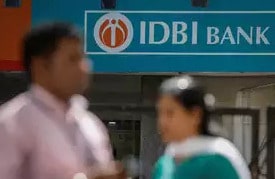
IDBI Bank, PNB Housing, and Sicom are among several Indian financial institutions making concerted efforts to offload their non-performing assets (NPAs), which have been hampering their balance sheets.
NPAs are loans or advances extended by banks, financial institutions, or other lenders that have ceased to generate income or repayment for a considerable period. Such loans are considered a dead asset on the balance sheet, reducing the overall profitability and impacting the liquidity of financial institutions.
In recent years, the Indian financial sector has been grappling with a surge in NPAs. The Reserve Bank of India (RBI) had mandated that all banks should disclose their bad loans and take steps to address the issue. Several banks, including IDBI Bank, PNB Housing, and Sicom, have been working on disposing of their NPAs to reduce the impact on their financials.
IDBI Bank, which is currently under the control of the Life Insurance Corporation of India (LIC), has been struggling with mounting bad loans for several years. The bank had an NPA ratio of 23.52% as of March 2021, one of the highest in the Indian banking sector. The bank has been working towards reducing its bad loans and has made significant progress in the last few quarters.
Recently, the bank announced that it had sold its entire stake in National Stock Exchange of India (NSE) for Rs. 1,624 crore to reduce its NPAs. The sale of the stake is expected to improve the bank’s capital adequacy ratio and help it meet regulatory requirements.
PNB Housing, the housing finance subsidiary of Punjab National Bank, has also been making efforts to dispose of its NPAs. The company had an NPA ratio of 5.21% as of June 2021. The company has been taking various measures to reduce its bad loans, including selling its non-core assets and restructuring its loan portfolio.
In a recent development, PNB Housing announced that it had signed an agreement with global alternative investment firm Cerberus to sell its NPA portfolio for Rs. 935 crore. The sale is expected to improve the company’s balance sheet and help it focus on its core business of housing finance.
Sicom, a development financial institution, has also been making efforts to dispose of its NPAs. The company had an NPA ratio of 9.3% as of March 2021. The company has been working towards reducing its bad loans and has made significant progress in the last few quarters.
Recently, Sicom announced that it had signed an agreement with the Asset Reconstruction Company of India (Arcil) to sell its NPA portfolio for Rs. 180 crore. The sale is expected to improve the company’s balance sheet and help it focus on its core business of providing developmental financial services.
The move towards disposing of NPAs is expected to improve the overall health of the Indian financial sector. The RBI had earlier stated that the Indian banking sector’s gross NPA ratio may increase to 13.5% by September 2021 due to the COVID-19 pandemic’s impact on the economy. However, with banks and other financial institutions taking proactive measures to dispose of their NPAs, the impact on their balance sheets is likely to be mitigated.
Experts believe that the move towards disposing of NPAs is a positive development for the Indian financial sector. “The disposal of NPAs is a necessary step towards cleaning up the balance sheets of banks and financial institutions. It will help improve their financial health and allow them to focus on their core businesses,” said Anil Gupta, a financial analyst based in Mumbai.
The disposal of NPAs is also expected to provide opportunities for asset reconstruction companies (ARCs) to acquire these assets and turn them around.
Read More on IDBI Bank









